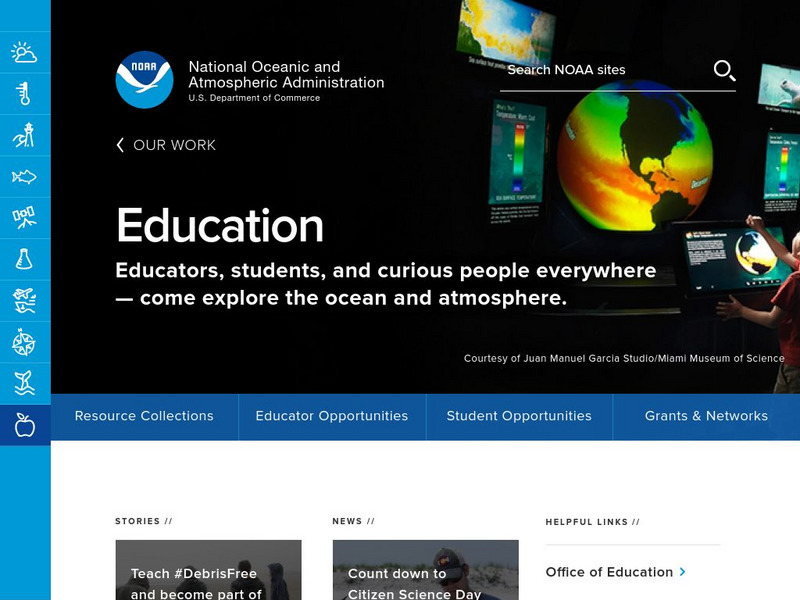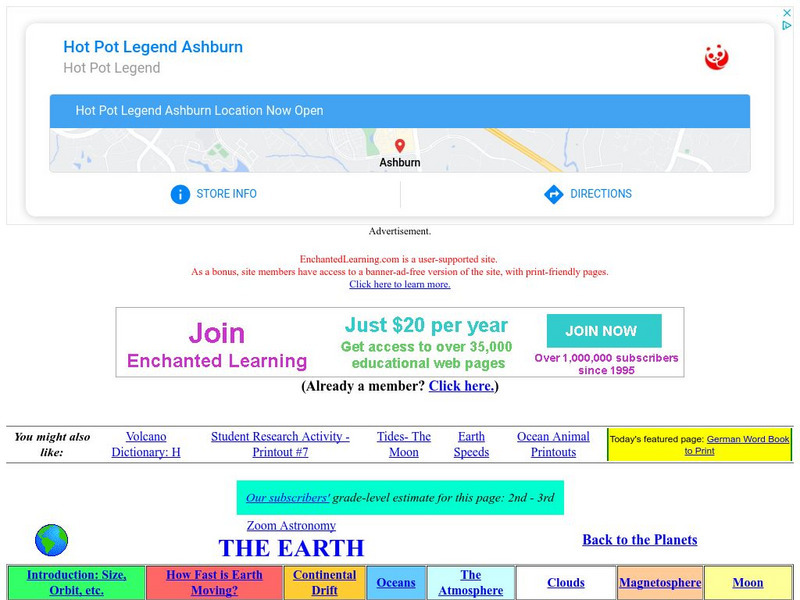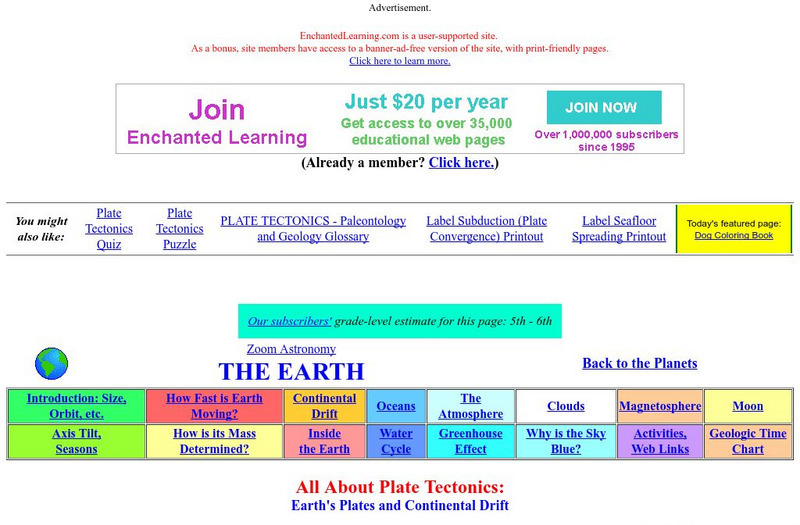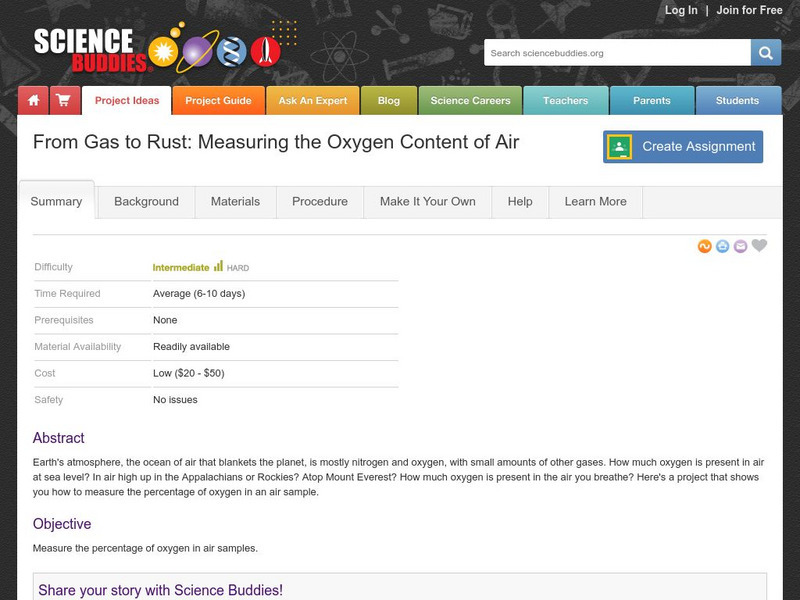Hi, what do you want to do?
NOAA
Noaa: Education Resources
Links to earth science sites, including safety tips, fun activities, general earth science information, and daily weather reports and more.
Cosmo Learning
Cosmo Learning: Blue Planet: Introduction to Oceanography
A collection of video lectures from an introduction to oceanography course taught at the University of California, Los Angeles. The course gives a general introduction to the processes and history of Earth's global oceanic system in...
PBS
Pbs Learning Media: Link Between Arctic Sea Ice and Solar Radiation Absorbed
The Arctic plays an important role in regulating Earth's climate. The region reflects much of the Sun's energy and helps keep the planet cool. Data collected by NASA have revealed that sea ice in the Arctic has steadily declined over the...
Other
Greenpeace
This is the home site for the non-profit organization Greenpeace. Greenpeace is an organization whose primary concern are threats to the planet's biodiversity and environment. The site provides links to news about the organization, a...
Enchanted Learning
Enchanted Learning: Zoom School: Oceans
Find out why the oceans are blue and what causes waves by clicking here. There is a table of information about the four oceans as well as interesting facts on waves, salinity, and tides.
Wonderville Media
Wonderville: Oceanographers
The planet Earth has more ocean than land, so oceanographers have a lot to work with! Whether they study marine biology, tides, engineering, or water quality, there is always more to learn about the ocean and the life within it. While...
Khan Academy
Khan Academy: What Is the Biosphere?
This article explains that as our knowledge of life on the planet evolves, we've come to use the word biosphere as a way of explaining the entire intertwined network of life on Earth. This concept combines an understanding of geology,...
National Institute of Educational Technologies and Teacher Training (Spain)
Ministerio De Educacion: La Hidrosfera Terreste
In this site learn about the origin of water on Earth, water in other planets, the molecule of water, the sea water solution, the water on the continents and water and health. It contains many illustrations and 14 interactive activities.
Enchanted Learning
Enchanted Learning: All About Plate Tectonics
Simple discussion of plate tectonics and Pangaea. Includes maps and interactives.
TED Talks
Ted: Ted Ed: The Otherworldly Creatures in the Ocean's Deepest Depths
Although the deep ocean zone seems like an inhospitable and remote corner of the planet, it is actually one of the greatest habitats on Earth. Lidia Lins explores how so many species thrive in this mysterious underwater world. [5:02]
Science Buddies
Science Buddies: From Gas to Rust: Measuring the Oxygen Content of Air
Earth's atmosphere, the ocean of air that blankets the planet, is mostly nitrogen and oxygen, with small amounts of other gases. How much oxygen is present in air at sea level? Is air high up in the Appalachians or Rockies? Atop Mount...
University Corporation for Atmospheric Research
Ucar: Sea Ice and Heat: A Vicious Cycle
Melting sea ice doesn't cause sea level to rise because the ice is already in the ocean, but it does cause other changes to the planet. When sea ice melts, more sunlight is absorbed by the Earth, which causes more warming. It's a vicious...












